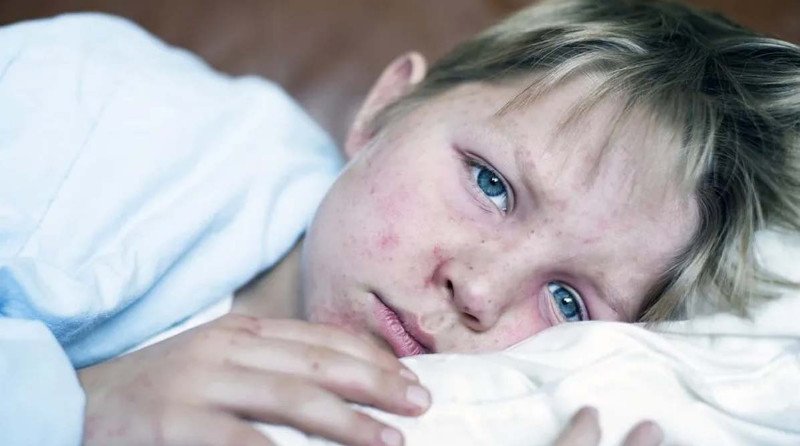
Millions of parents in England are being contacted by the NHS and urged to make an appointment to have their children vaccinated against measles, as cases rise across the country.
More than 3.4 million children aged under 16 are unprotected and at risk of becoming ill, NHS England says.
Areas with low uptake of the MMR vaccine, such as the West Midlands and London, are being targeted first.
A similar campaign last winter pushed up vaccinations by 10%.
UK health officials said last week that an outbreak of highly contagious measles in the West Midlands could spread rapidly in other towns and cities with low vaccination rates.
The measles, mumps and rubella (MMR) vaccine is given in two doses – the first around the age of one and the second when a child is about three years and four months old.
It is very effective at protecting against measles, but only 85% of children starting primary school in the UK have had both jabs – well below the target of 95% needed to stop it spreading.
In some cities, such as Liverpool, Manchester, Birmingham and Nottingham, only 75% of five-year-olds are fully vaccinated, NHS figures show.
The current campaign will contact more than four million parents, carers and young adults by text, email or letter to tell them they or their children have missed out on one or both doses.
This includes more than one million children aged six to 11 across England, plus 330,000 11 to 16-year-olds and nearly one million 16 to 26-year-olds in London and the West Midlands.
Many young adults who were young children when a study falsely linked the vaccine and autism 25 years ago, are still unvaccinated.
Steve Russell, NHS England’s director of vaccinations and screening, said the NHS was acting quickly to tackle the spread of measles.
“People who are unvaccinated can get catch-up jabs at MMR pop-ups in schools and other convenient places, while GPs, teachers and trusted community leaders are encouraging groups that are less likely to get their jab to come forward,” he said.
One in five children with the disease are having to be admitted to hospital for treatment in Birmingham.
Babies who are too young to have their first dose, pregnant women and those who have weakened immune systems are most at risk from measles, which can be serious at any age.
During pregnancy, measles can lead to stillbirth, miscarriage and a baby being born small, so NHS England is encouraging young adults to catch up on missed doses too.
 Weekly Bangla Mirror | Bangla Mirror, Bangladeshi news in UK, bangla mirror news
Weekly Bangla Mirror | Bangla Mirror, Bangladeshi news in UK, bangla mirror news







